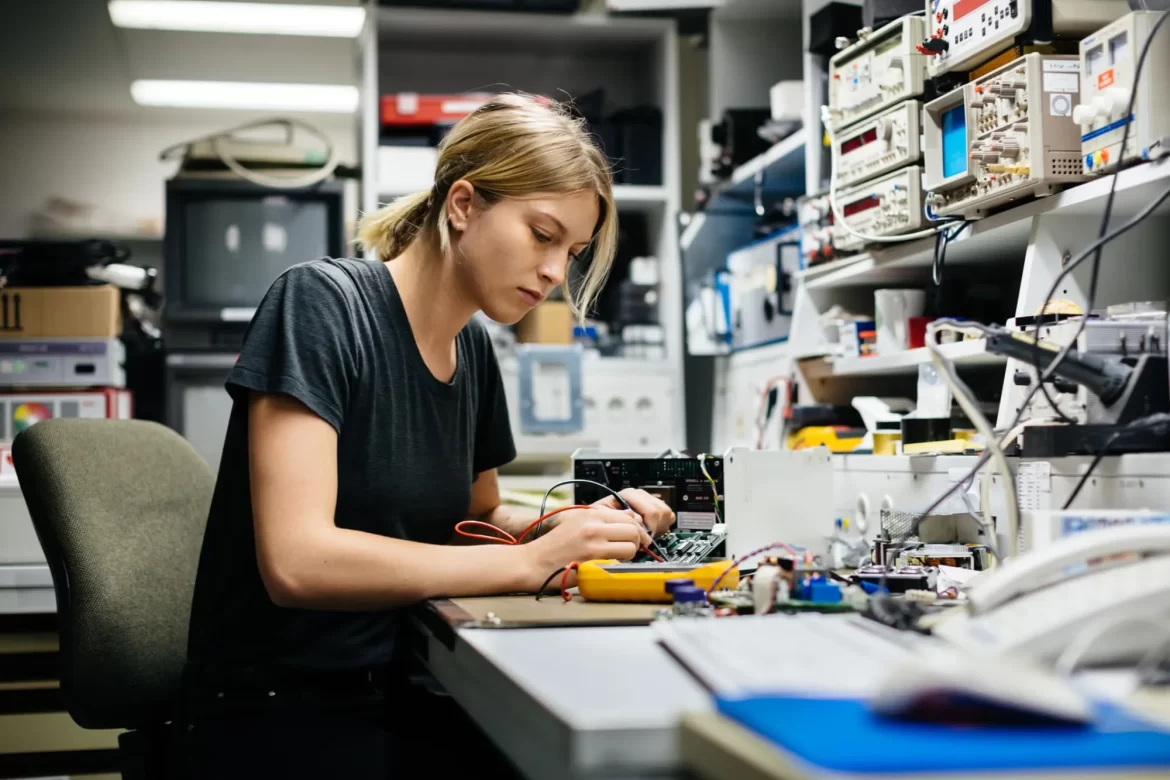If your hobby includes using tools or building things, a hardware store should be your go-to for supplies. Employees at these stores typically possess extensive knowledge regarding various projects.
Hardware engineers’ career paths vary based on the industry they are employed in. States with significant technology industries typically experience greater demand for these professionals.
Designing and Developing New Products
Hardware development for new products requires both knowledge and technical abilities. Hardware designers must possess expertise in creating digital circuit boards, developing components that software engineers can use in creating advanced computer systems, as well as possess general programming language knowledge and understand the Bill of Materials (BOM).
Hardware designers may work alone or as part of a team. To begin their careers in hardware design, typically one needs at least a bachelor’s degree in information technology.
EEWeb offers an invaluable resource for those pursuing hardware design as a career option. Membership enables members to connect with electronics and engineering experts from many companies and universities alike.
As the tech industry evolves, hardware has emerged as a lucrative new market. If you are contemplating entering this field as a career choice, be aware of all of its associated complexities and be prepared for an uphill struggle ahead.
Getting to Know Their Regular Customers
Computer hardware engineers specialize in designing, building and modifying the physical components that comprise computer systems and electronic devices of various scales. The profession requires at least a bachelor’s degree in computer engineering or related disciplines; many also hold additional industry-standard professional certifications that help advance their careers.
Hardware engineers frequently collaborate with other computer professionals in order to complete their work. For instance, when designing new systems or products they must collaborate with software developers and IT specialists as part of their design.
Collaboration between hardware projects and business goals is essential to their success, as it ensures they align with an organization’s overall business goals and are in alignment. Otherwise, projects might be delayed or cancelled for reasons unrelated to hardware. This can be particularly jarring to workers who have already put considerable time and energy into an endeavor only for it later to be cancelled outright by management; workers may spend weeks or months creating products only for them to later be scrapped by management without compensation; longer their involvement in one project continues, the more likely they are likely they become burned out by that project and any subsequent ones.
Working in a Fast-paced Environment
Working in a fast-paced environment can be both rewarding and demanding – whether in computer hardware engineering or another profession, working under pressure requires professionals to juggle multiple projects while remaining flexible enough to adjust quickly to changes. They must also meet deadlines while producing high quality work under time pressure.
Computer hardware engineers often spend their days evaluating computer needs and designing equipment and components to address those needs. They may also travel to businesses to assist in product installation or maintenance services.
As a way of helping you determine whether a fast-paced environment is right for you, here are the main general and specialized skills desired by hardware engineer positions. These desirable traits may help separate you from others in your field; additionally, interviewers are likely to ask about these when interviewing candidates for jobs.
Learning New Skills
No matter where you are in your career journey, you can always improve your technical skills through internships, after-school programs or self-study. Furthermore, certification programs exist which will aid your development as an individual and professional.
Computer hardware engineers can work for various organizations. They may work in research labs, testing out new methods and materials that could lead to future technological breakthroughs; or in manufacturing plants overseeing production lines for multiple products.
Some companies require their hardware engineers to travel between offices for software installation and maintenance purposes, especially large companies with multiple offices. Furthermore, many medium and large offices utilize IT help desk specialists who assist fellow employees experiencing error messages or malfunctioning hardware; this responsibility falls squarely upon a hardware engineer and must be completed frequently during their on-the-job training.









